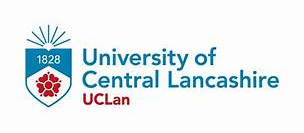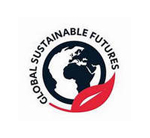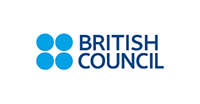



EmpowerHER project is a key project within Going Global Partnerships program, Gender Equality Partnerships grant funded by the British Council, United Kingdom, and Egypt.
The project aims to:
• Address gender inequality in STEM fields: By empowering women graduates and promoting inclusivity. The project seeks to provide women graduates in STEM with the skills, resources, and networks they need to overcome barriers and thrive in their careers.
• Promote innovation and technological advancement: The project not only address the gender gap but also help Egypt tap into a larger talent pool, which is essential for economic growth. STEM fields are at the forefront of innovation. The project will stimulate innovation and technological advancement in Egypt by encouraging more women to pursue STEM careers, which can drive economic growth as new technologies and ideas are developed and commercialized.
• Enhance financial stability of women and help narrow the gender income gap: By investing in the project EmpowerHER has the potential to significantly contribute to economic development and social welfare in the country. It will increase the participation of women in the workforce, particularly in high-demand STEM sectors. The project will contribute to the development of a highly skilled workforce. It can attract foreign investment and encourage the growth of domestic industries that require a well-educated and skilled workforce. Promoting women’s careers in STEM can help narrow the gender income gap. Women can contribute more significantly to household income by having equal access to high-paying STEM jobs. This financial stability can improve the overall well-being of families and communities. Countries that invest in STEM education and careers are often more competitive on the global stage. As Egypt produces a more substantial number of STEM professionals, it can become a more competitive player in the global knowledge economy.
• Extend to community development: The project’s activities will extend to community development efforts, such as STEM education programs for underprivileged areas. It can uplift marginalized communities, reducing poverty and improving overall social welfare. Egypt will benefit from increased research and development in STEM fields, leading to advancements in various sectors, including healthcare, agriculture, and renewable energy. These advancements can improve the quality of life for Egyptian citizens.
The “EmpowerHER” project can potentially create a ripple effect that positively impacts Egypt’s economic development and social welfare by promoting gender equality, fostering innovation, and nurturing a more skilled and inclusive workforce. However, the project’s success will depend on effective implementation, continued support, and collaboration among government, academia, and private sector stakeholders. In the United Kingdom, the project’s efforts to support women graduates in STEM will contribute to a more diverse and skilled workforce. This diversity will lead to increased innovation, better problem-solving, and enhanced creativity in various industries. By fostering cross-cultural collaboration between the UCLan-UK and AASTMT-Egypt, the project will promote global understanding and create networks of empowered women professionals who can share knowledge and experiences. This exchange of ideas will contribute to more effective solutions to global challenges and create opportunities for international partnerships.
Acknowledgements of Funder, Speakers, Organizers, and Participants
We acknowledge the funding received for the purposes of Gender Equality Grant by the Going Global Partnerships, British Council, between the University of Central Lancashire, UK and Arab Academy for Science, Technology and Maritime Transport (AASTMT), Egypt, for the Project Title “EMPOWERHER: ADVANCING WOMEN IN STEM HIGHER EDUCATION AND CAREERS" between December 2023 and March 2025.
The consortium was formed for the purpose of applying to the Going Global Partnerships funding opportunity through the voluntary efforts made by the Global Sustainable Futures Network (GSFN), founded by Dr Renuka Thakore, and the GSFN coordinator, Rania Rageh. Without their efforts, the application would have not been possible.
Acknowledgement of the key contributors, including Dr Renuka Thakore, Prof Yasser Gaber, Eng. Rania Rageh and Dr Andy Clarke, for their pivotal roles in organizing and leading the workshop, as well as all the participants who actively engaged and contributed to the discussions. Special acknowledgment to all speakers who enriched the workshop, and Certificates of appreciation were issued to all speakers.
Also we acknowledge the active participation of all the attendees and certificates of participation were also issued to all participants.
